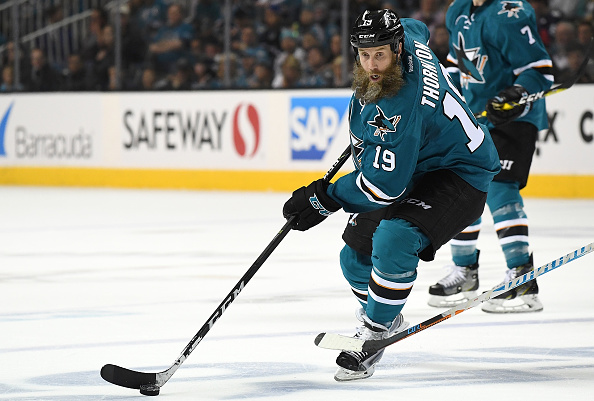As teams get eliminated from the playoffs, injuries that players were battling through inevitably come to light. Players shuffle off in a long line to their surgeons, physical therapists, and physicians to repair themselves before it all begins again in a couple of months.
This is also a time that certain hockey fans – you know the breed – come out of the woodwork to laud these battered soldiers’ toughness and grit. They come equipped with memes comparing their hardy hockey heroes to those pansies on the soccer or basketball benches. Search the #PleaseLikeMySport hashtag on Twitter and you will find plenty of these fans, blissfully unaware that they are the butt of the joke.
I get it, hockey players are tough. You cannot make it to the NHL without being able to hold your own and play through the pain. That is not changing anytime soon, especially as so many coaches and players also subscribe to this theory of hockey as peak masculine toughness.
The other night I was chatting with a friend about some of these injuries that have been revealed following eliminations. My friend, a hockey player himself, spoke reverently about that grit – “That guy on the Dallas Stars [meaning Rich Peverley] literally died on the bench and came back like forty-five seconds later ready to take his next shift. Iconic.” Then my friend went off to play in a game where he single-handedly started and finished a line brawl, so perhaps he is not the best authority on the subject.
Though we are thankfully a few years removed from the horrific Peverley incident – if you’re unfamiliar, his heart stopped on the bench during a game and he collapsed, then paramedics immediately revived him and the game was postponed – there still has been some brutal injuries that players have brushed under the rug this year.
For example, “Jumbo” Joe Thornton of the San Jose Sharks played in the first round with a torn MCL and ACL. Thornton is 37 years old and 6’4″, which means he is not going to heal up too rapidly. Head coach Peter DeBoer said that he was incredibly impressed by Thornton’s grit to keep playing.
Mitch Marner of the Toronto Maple Leafs had mono through the team’s first round of games. Mono is exhausting on its own, so it is kind of shocking he even found the energy to skate, but the biggest risk lies even beyond the communicability of this disease on the ice: it affects the spleen, making it prone to bursting at any kind of contact. That’s not the kind of thing you want to worry about during the obviously high-contact sport of hockey, especially against the heavy-hitting Washington Capitals.
Erik Karlsson – though his Ottawa Senators are still in the chase – revealed that he had played in the first round with two hairline fractures in his heel, and had been getting shots to be able to skate on it. Though he guaranteed he would be back to 100 percent by the start of the second round, he has a history of foot and ankle area injuries, making this even more worrisome.
Zach Werenski, a nominee for the Calder Trophy, which goes to the most impressive rookie in the league, took a puck to the face during Game 3 of the Columbus Blue Jackets’ series against the Pittsburgh Penguins. I was at that game – I looked away from the ice for a second and the next thing I know they are out there scraping a pile of Werenski’s blood off the ice. Once doctors diagnosed his multiple facial fractures, he was out for the season; however, he was still allowed to return and played the rest of that game behind a full facemask.
Patrice Bergeron – he of “played through a broken rib and separated shoulder” fame of several years ago – had a sports hernia that could have required surgery… though he’s a Boston Bruin, the team that most embodies this tough-guy mentality.
Even Patrick Sharp of the Dallas Stars, who did not even come close to making the playoffs, insisted on playing out the remainder of the regular season on a nagging injury that he should have had operated on earlier. There was no postseason in sight for them that his presence would have made a difference for. Yet there he was, out there on the ice doing his thing until the end of March, even after admitting that he had this long-term, painful hip injury.
I am fairly confident that if a player died on the ice mid-game, he would try to come back as a zombie before his next shift and fans would applaud his dedication to the game and say he was a true hockey player.
Listen. Enough is enough. I am not about to get into the whole discourse over “toxic masculinity” and that whole thing here, but we as fans have to stop glorifying players who continue to play through serious injuries. Unless they are Jaromir Jagr, a hockey player’s career will probably end by their mid-to-late 30s, or even younger if they never successfully break into the NHL. Their entire lives are left to live, and it is ridiculous that they even consider sacrificing their health for the next five or six decades over one forty-second shift.
Adrenaline helping you finish a shift and get off the ice is one thing. Knowing you are seriously hurt and sticking it out the rest of the game, or even a series, is another.
These attitudes in the locker room and in the stands, are the reason we lose so many athletes to addictions and even suicides. What player is going to admit a moment of weakness while they are still playing and are expected to be tough constantly, to help bolster their team? You’d be hard-pressed to find one.
It is not realistic to think that the league would take any action, least of all to fine a player or coaching staff for continuing to play while knowing they have a bad injury. If there was ever a literal application for the term “adding insult to injury,” this would be it. But I do not know what else can be done to change the entire culture.
Maybe this is why I will never be a professional athlete, much less a pro hockey player. People argue that these guys have the passion and drive to put their health on the line on a nightly basis to win the ultimate prize, the Stanley Cup. I am well aware that’s what they do, and I am completely willing to admit that I like how hard-hitting and fast-paced hockey is, and everything that comes along with that.
However, there’s that assumed risk of injury inherent to the game.
Just do your time in the dark room, take your recovery slow, and don’t give yourself long-term damage. That’s all I’m asking.
Add The Sports Daily to your Google News Feed!







